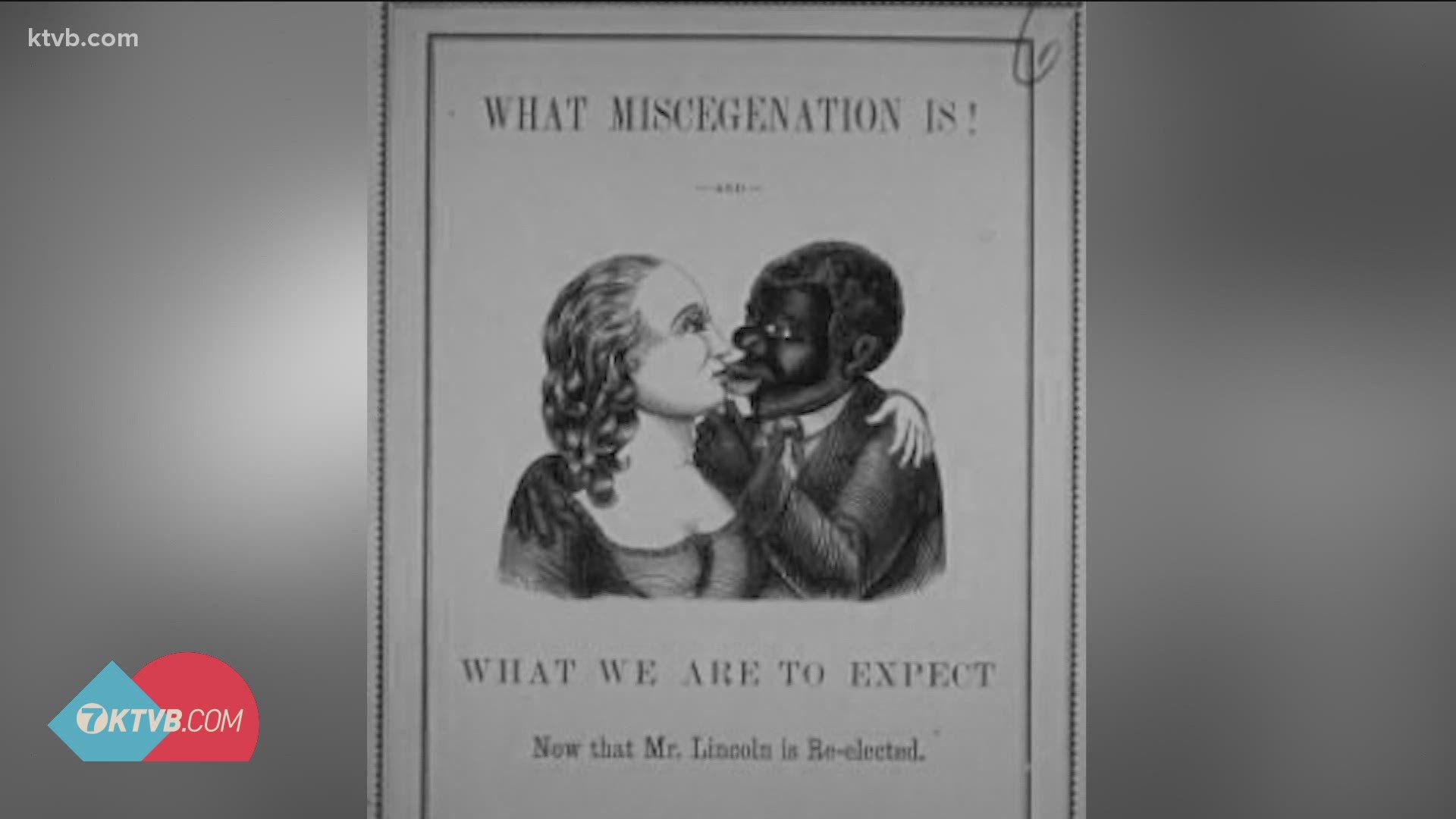BOISE, Idaho — Throughout history, anti-miscegenation laws, or state statutes that forbid interracial relationships, were passed by almost every state in the nation at one point or another.
Idaho was, in fact, one of those states.
On this day in history, Idaho decided to address its miscegenation law by pushing out interracial marriage laws further toward outer limits.
In the middle of the Civil War, President Abraham Lincoln was about to be reelected. At the same time, Idaho had just become an official territory.
One of its first territorial laws banned marriage between any white person and any person of African, Indian or Chinese descent. The law was passed during Idaho's first legislative assembly in 1864.
The crime of miscegenation was punishable by a misdemeanor.
57 years later, on March 1, 1921, the Idaho Legislature amended the law. The change, however, was not to right a wrong: lawmakers changed the language to "Negroes" or "Mulattoes" and expanded the marriage ban to include Mongolians, defined at the time as the largest race on record at 655 million and considered those from China, Tibet, Japan, Korea, Siam and Indochina.
The population of Idaho during that session was just over 430,000, of which fewer than 1% were not considered white.
The interracial marriage law was repealed in 1959 despite only 4% of Americans approving of interracial marriage. Idaho's 35th legislature repealed the law 12 years before interracial marriage became fully legal in the United States.
The 1967 Supreme Court decision Loving v. Virginia made state anti-miscegenation laws unconstituional.
Join 'The 208' conversation:
- Text us at (208) 321-5614
- E-mail us at the208@ktvb.com
- Join our The 208 Facebook group: https://www.facebook.com/groups/the208KTVB/
- Follow us on Twitter: @the208KTVB or tweet #the208 and #SoIdaho
- Follow us on Instagram: @the208KTVB
- Bookmark our landing page: /the-208
- And we also turn each episode into a podcast or Podbeam
- Still reading this list? We're on YouTube, too:

